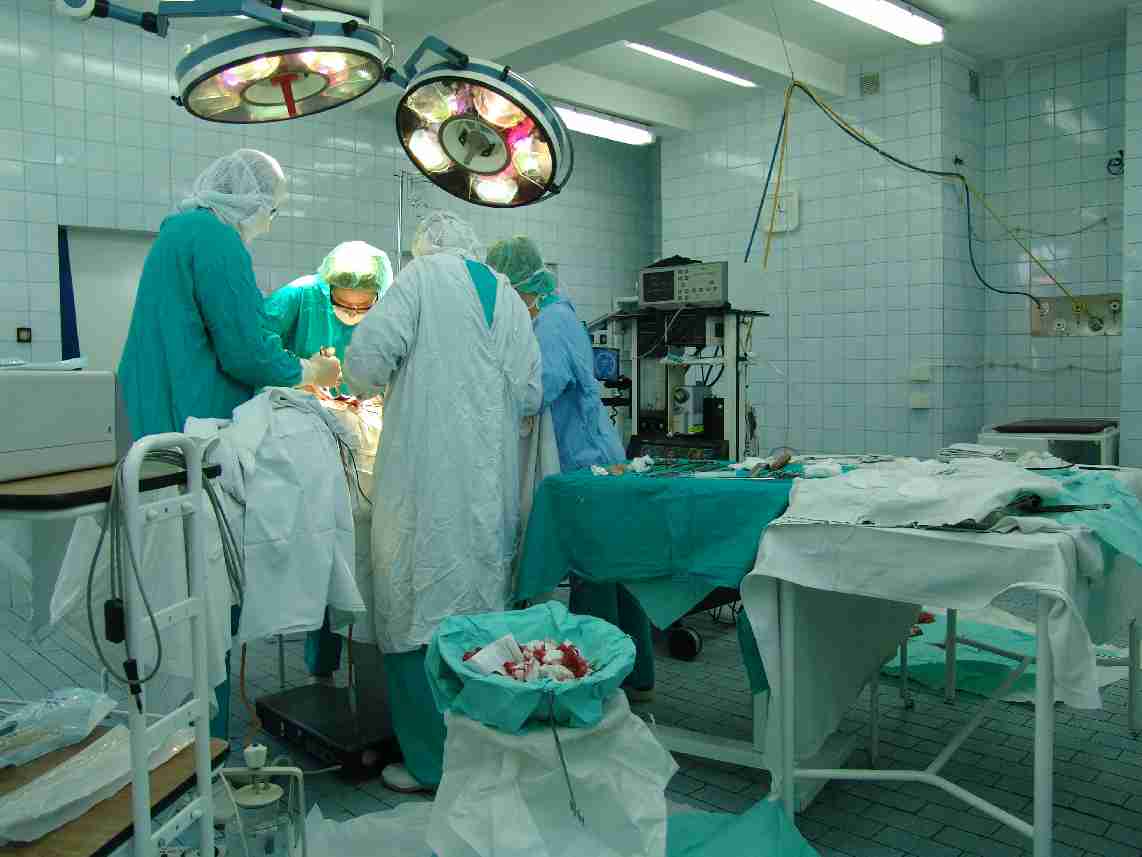|
Butterworth Hospital (Eastern Cape)
Butterworth Hospital is a district government funded hospital for the Mnquma Local Municipality area in Butterworth, Eastern Cape in South Africa.The hospital has a bed capacity of 350. The hospital departments include Emergency department, Paediatric ward, Maternity ward, Obstetrics/Gynecology, Psychiatric Services, Out Patients Department, Surgical Services, Medical Services, Operating Theatre & CSSD Services, Ophthalmology, Pharmacy, Anti-Retroviral (ARV) treatment for HIV/AIDS, X-ray Services, Physiotherapy, NHLS Laboratory, Occupational Services, Oral Health Care Provides, Laundry Services, Kitchen Services and Mortuary A morgue or mortuary (in a hospital or elsewhere) is a place used for the storage of human corpses awaiting identification (ID), removal for autopsy, respectful burial, cremation or other methods of disposal. In modern times, corpses have cus .... References [...More Info...] [...Related Items...] OR: [Wikipedia] [Google] [Baidu] |
Butterworth, Eastern Cape
Butterworth, also known as Gcuwa, is a town in the Eastern Cape Province, South Africa. Butterworth has a population of 45,900 and is situated on the N2 national highway 111 km north of East London.''Butterworth'', Travelblog p.1 - 2Tony Pinchuck, Barbara McCrea & Donald Reid, ''Rough guide to South Africa, Lesotho & Swaziland'', Edition 3, Rough Guides, 2002. p. 425 History The area around Butterworth was populated by amaXhosa, KhoiKhoi and San people. Butterworth was first established as a mission station in 1827 north of the |
Surgical
Surgery is a medical specialty that uses manual and instrumental techniques to diagnose or treat pathological conditions (e.g., trauma, disease, injury, malignancy), to alter bodily functions (e.g., malabsorption created by bariatric surgery such as gastric bypass), to reconstruct or alter aesthetics and appearance ( cosmetic surgery), or to remove unwanted tissues (body fat, glands, scars or skin tags) or foreign bodies. The act of performing surgery may be called a surgical procedure or surgical operation, or simply "surgery" or "operation". In this context, the verb "operate" means to perform surgery. The adjective surgical means pertaining to surgery; e.g. surgical instruments, surgical facility or surgical nurse. Most surgical procedures are performed by a pair of operators: a surgeon who is the main operator performing the surgery, and a surgical assistant who provides in-procedure manual assistance during surgery. Modern surgical operations typically require a surgi ... [...More Info...] [...Related Items...] OR: [Wikipedia] [Google] [Baidu] |
Mortuary
A morgue or mortuary (in a hospital or elsewhere) is a place used for the storage of human corpses awaiting identification (ID), removal for autopsy, respectful burial, cremation or other methods of disposal. In modern times, corpses have customarily been refrigerated to delay decomposition. Etymology and lexicology The term ''mortuary'' dates from the early 14th century, from Anglo-French ''mortuarie'', meaning "gift to a parish priest from a deceased parishioner," from Medieval Latin mortuarium, noun use of neuter of Late Latin adjective mortuarius "pertaining to the dead," from Latin ''mortuus'', pp. of ''mori'' "to die" (see mortal (adj.)). The meaning of "place where the deceased are kept temporarily" was first recorded in 1865, as a euphemism for the earlier English term "deadhouse". The term ''morgue'' comes from the French language, French. First used to describe the inner wicket of a prison, where new prisoners were kept so that jailers and turnkeys could recognize ... [...More Info...] [...Related Items...] OR: [Wikipedia] [Google] [Baidu] |
Kitchen
A kitchen is a room (architecture), room or part of a room used for cooking and food preparation in a dwelling or in a commercial establishment. A modern middle-class residential kitchen is typically equipped with a Kitchen stove, stove, a sink with hot and cold running water, a refrigerator, and worktops and kitchen cabinet (furniture), cabinets arranged according to a modular design. Many households have a microwave oven, a dishwasher, and other electric appliances. The main functions of a kitchen are to store, prepare and cook food (and to complete related tasks such as dishwashing). The room or area may also be used for dining (or small meals such as breakfast), entertaining and laundry. The design and construction of kitchens is a huge market all over the world. Commercial kitchens are found in restaurants, cafeterias, hotels, hospitals, educational and workplace facilities, army barracks, and similar establishments. These kitchens are generally larger and equipped with big ... [...More Info...] [...Related Items...] OR: [Wikipedia] [Google] [Baidu] |
Laundry
Laundry is the washing of clothing and other textiles, and, more broadly, their drying and ironing as well. Laundry has been part of history since humans began to wear clothes, so the methods by which different cultures have dealt with this universal human need are of interest to several branches of scholarship. Laundry work has traditionally been highly gendered, with the responsibility in most cultures falling to women (formerly known as laundresses or washerwomen). The Industrial Revolution gradually led to mechanized solutions to laundry work, notably the washing machine and later the tumble dryer. Laundry, like cooking and child care, is still done both at home and by commercial establishments outside the home. The word "laundry" may refer to the clothing itself, or to the place where the cleaning happens. An individual home may have a laundry room; a utility room includes, but is not restricted to, the function of washing clothes. An apartment building or student ... [...More Info...] [...Related Items...] OR: [Wikipedia] [Google] [Baidu] |
Laboratory
A laboratory (; ; colloquially lab) is a facility that provides controlled conditions in which scientific or technological research, experiments, and measurement may be performed. Laboratories are found in a variety of settings such as schools, universities, privately owned research institutions, corporate research and testing facilities, government regulatory and forensic investigation centers, physicians' offices, clinics, hospitals, regional and national referral centers, and even occasionally personal residences. Overview The organisation and contents of laboratories are determined by the differing requirements of the specialists working within. A physics laboratory might contain a particle accelerator or vacuum chamber, while a metallurgy laboratory could have apparatus for casting or refining metals or for testing their strength. A chemist or biologist might use a wet laboratory, while a psychologist's laboratory might be a room with one-way mirrors and hidden ... [...More Info...] [...Related Items...] OR: [Wikipedia] [Google] [Baidu] |
Physiotherapy
Physical therapy (PT), also known as physiotherapy, is a healthcare profession, as well as the care provided by physical therapists who promote, maintain, or restore health through patient education, physical intervention, disease prevention, and health promotion. Physical therapist is the term used for such professionals in the United States, and physiotherapist is the term used in many other countries. The career has many specialties including musculoskeletal, orthopedics, cardiopulmonary, neurology, endocrinology, sports medicine, geriatrics, pediatrics, women's health, wound care and electromyography. PTs practice in many settings, both public and private. In addition to clinical practice, other aspects of physical therapy practice include research, education, consultation, and health administration. Physical therapy is provided as a primary care treatment or alongside, or in conjunction with, other medical services. In some jurisdictions, such as the United Ki ... [...More Info...] [...Related Items...] OR: [Wikipedia] [Google] [Baidu] |
X-ray
An X-ray (also known in many languages as Röntgen radiation) is a form of high-energy electromagnetic radiation with a wavelength shorter than those of ultraviolet rays and longer than those of gamma rays. Roughly, X-rays have a wavelength ranging from 10 Nanometre, nanometers to 10 Picometre, picometers, corresponding to frequency, frequencies in the range of 30 Hertz, petahertz to 30 Hertz, exahertz ( to ) and photon energies in the range of 100 electronvolt, eV to 100 keV, respectively. X-rays were discovered in 1895 in science, 1895 by the German scientist Wilhelm Röntgen, Wilhelm Conrad Röntgen, who named it ''X-radiation'' to signify an unknown type of radiation.Novelline, Robert (1997). ''Squire's Fundamentals of Radiology''. Harvard University Press. 5th edition. . X-rays can penetrate many solid substances such as construction materials and living tissue, so X-ray radiography is widely used in medical diagnostics (e.g., checking for Bo ... [...More Info...] [...Related Items...] OR: [Wikipedia] [Google] [Baidu] |
HIV/AIDS
The HIV, human immunodeficiency virus (HIV) is a retrovirus that attacks the immune system. Without treatment, it can lead to a spectrum of conditions including acquired immunodeficiency syndrome (AIDS). It is a Preventive healthcare, preventable disease. It can be managed with treatment and become a manageable chronic health condition. While there is no cure or vaccine for HIV, Management of HIV/AIDS, antiretroviral treatment can slow the course of the disease, and if used before significant disease progression, can extend the life expectancy of someone living with HIV to a nearly standard level. An HIV-positive person on treatment can expect to live a normal life, and die with the virus, not of it. Effective #Treatment, treatment for HIV-positive people (people living with HIV) involves a life-long regimen of medicine to suppress the virus, making the viral load undetectable. Treatment is recommended as soon as the diagnosis is made. An HIV-positive person who has an ... [...More Info...] [...Related Items...] OR: [Wikipedia] [Google] [Baidu] |
Pharmacy
Pharmacy is the science and practice of discovering, producing, preparing, dispensing, reviewing and monitoring medications, aiming to ensure the safe, effective, and affordable use of medication, medicines. It is a miscellaneous science as it links health sciences with pharmaceutical sciences and natural sciences. The professional practice is becoming more clinically oriented as most of the drugs are now manufactured by pharmaceutical industries. Based on the setting, pharmacy practice is either classified as community or institutional pharmacy. Providing direct patient care in the community of institutional pharmacies is considered clinical pharmacy. The scope of pharmacy practice includes more traditional roles such as compounding and dispensing of medications. It also includes more modern services related to health care including clinical services, reviewing medications for safety and efficacy, and providing drug information with patient counselling. Pharmacists, therefore, ... [...More Info...] [...Related Items...] OR: [Wikipedia] [Google] [Baidu] |
Operating Theatre
An operating theater (also known as an Operating Room (OR), operating suite, operation suite, or Operation Theatre (OT)) is a facility within a hospital where surgical operations are carried out in an aseptic environment. Historically, the term "operating theater" referred to a non-sterile, tiered theater or amphitheater in which students and other spectators could watch surgeons perform surgery. Contemporary operating rooms are usually devoid of a theater setting, making the term "operating theater" a misnomer in those cases. Classification of operation theatre Operating rooms are spacious, in a cleanroom, and well-lit, typically with overhead surgical lights, and may have viewing screens and monitors. Operating rooms are generally windowless, though windows are becoming more prevalent in newly built theaters to provide clinical teams with natural light, and feature controlled temperature and humidity. Special air handlers filter the air and maintain a slightly elevated pres ... [...More Info...] [...Related Items...] OR: [Wikipedia] [Google] [Baidu] |






